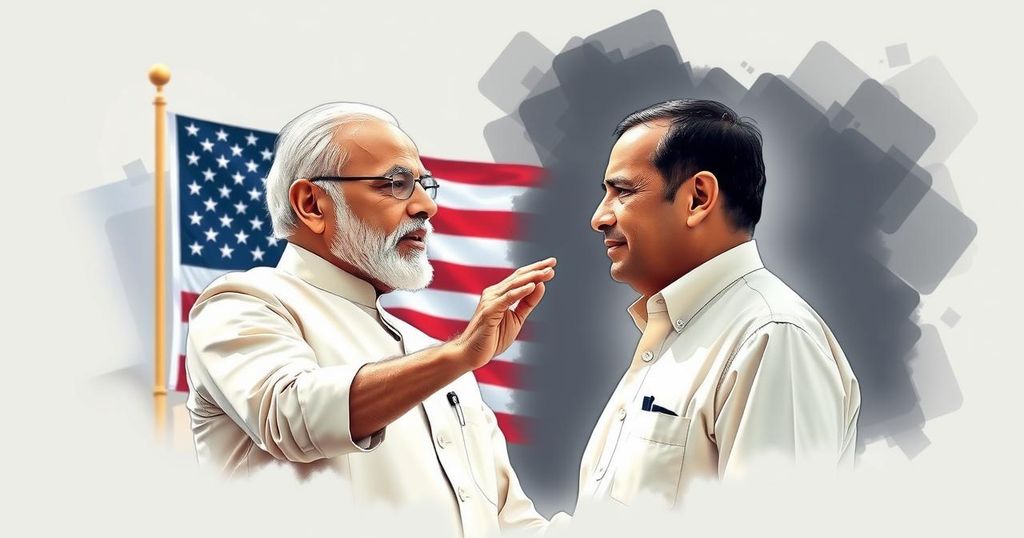Donald Trump has won the presidential election, impacting U.S.-India relations significantly. President Joe Biden exits, while Prime Minister Modi congratulates Trump. The future partnership faces challenges from Trump’s tariffs and ongoing legal issues but retains strong bipartisan support.
In an unexpected political development, Donald Trump has won the presidential election, creating significant implications for United States-India relations. Following President Joe Biden’s departure from the White House after a disappointing debate, this outcome marks a momentous return to leadership reminiscent of Grover Cleveland’s historical second term. With Indian Prime Minister Narendra Modi offering his congratulations, the future of bilateral relations hangs in the balance, facing threats from tariff discussions and ongoing legal issues involving Trump’s administration.
As the Biden administration leaves behind a solid partnership between the two nations, they aspire for continued bipartisan support despite the challenges posed by Trump’s presidency. The relationship, however, may encounter turbulence from indictment controversies and tariff threats, which could hinder diplomatic progress. Prime Minister Modi, having also secured a third term, has expressed a desire to maintain the strong partnership established with the United States.
As Trump’s administration looks to reinforce ties, it has already spotlighted influential Indian-Americans for key roles within the government. This reinforces the intricate connections that bind the two nations, emphasizing the pivotal role that India plays in U.S. foreign policy amidst the shifting political landscape.
The recent political shift in the United States, marked by Donald Trump’s election victory, poses new challenges and opportunities for U.S.-India relations. Prior to this election, the Biden administration maintained a strong bilateral partnership with India, navigating complex geopolitical issues. However, Trump’s return, characterized by legal controversies and potential tariff implementation, necessitates a reassessment of this significant diplomatic relationship. The emphasis on Indian-Americans in strategic roles could signal a focus on leveraging existing ties to navigate the transition.
In summary, Donald Trump’s return to the presidency heralds a new era for U.S.-India relations, fraught with potential challenges stemming from legal issues and tariff threats. Nonetheless, both nations, under the leadership of Trump and Modi, express a commitment to preserving their robust partnership. As circumstances evolve, strategic engagement and bipartisan support will be vital for maintaining diplomatic momentum between the United States and India.
Original Source: www.devdiscourse.com






